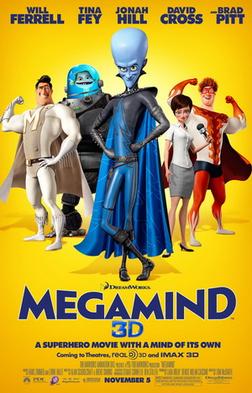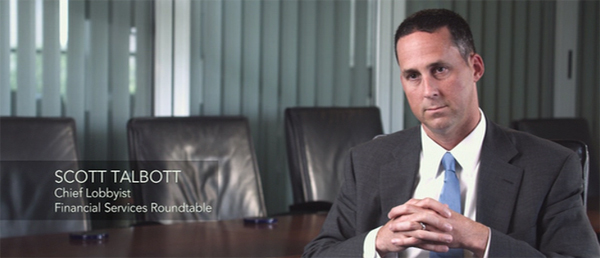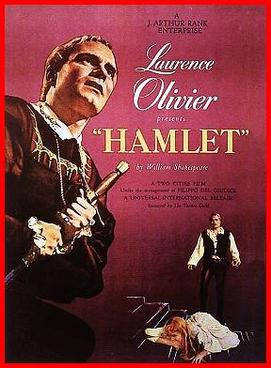Cher And Cher Alike...
In order to enjoy Burlesque, you have to be willing to forgive a lot. You have to forgive that Christina Aguilera, playing the lead role of Ali, is not an actress. You have to forgive that Cher, playing her boss/mentor Tess, can act better than she did here. You have to forgive a cacophony of clichés that make up the plot.
Still, given that Burlesque is basically a vehicle for Aguilera to segway into film doing what she does best (which is sing), the film itself can be remarkably entertaining.
Ali (Aguilera) leaves Iowa for the big lights of L.A., looking for a chance to sing and dance; she becomes entranced by the Burlesque Lounge, where she sees Tess (Cher) on stage, as well as resident Queen Bitch Nikki (Kristen Bell). Ali is also taken in by the charms of bartender/composer Jack (Cam Gigandet). Ali dreams of being up on stage, but Tess doesn't think our heroine has what it takes. Tess, however, has problems of her own.
Her ex-husband/club co-owner Vince (Peter Gallagher) wants her to sell the Burlesque to real estate mogul Marcus Gerber (Eric Dane). Ali soon catches Gerber's eye. The pregnancy of another dancer, Georgia (Julianne Hough) gives Ali a chance at last to be up there, in the lights. Another fortuitous opportunity comes for her to show Tess, the wardrobe master Sean (Stanley Tucci), the ticket seller/performer Alexis (Alan Cumming), Marcus, Jack, and all the other burlesque dancers that she's got A Voice.
Soon, she becomes the toast of the town, squired by Marcus while Jack secretly pines for her but, alas, he's unable to pursue her because he's engaged to an actress in New York. Eventually, Ali and Jack do come together, but there are other things to deal with, specifically with Tess only a day away from losing the Burlesque to Marcus. Ali comes up with a clever solution, and it all ends with a mega-production number, Show Me How to Burlesque.
Her ex-husband/club co-owner Vince (Peter Gallagher) wants her to sell the Burlesque to real estate mogul Marcus Gerber (Eric Dane). Ali soon catches Gerber's eye. The pregnancy of another dancer, Georgia (Julianne Hough) gives Ali a chance at last to be up there, in the lights. Another fortuitous opportunity comes for her to show Tess, the wardrobe master Sean (Stanley Tucci), the ticket seller/performer Alexis (Alan Cumming), Marcus, Jack, and all the other burlesque dancers that she's got A Voice.
Soon, she becomes the toast of the town, squired by Marcus while Jack secretly pines for her but, alas, he's unable to pursue her because he's engaged to an actress in New York. Eventually, Ali and Jack do come together, but there are other things to deal with, specifically with Tess only a day away from losing the Burlesque to Marcus. Ali comes up with a clever solution, and it all ends with a mega-production number, Show Me How to Burlesque.
Writer-director Steven Antin borrows freely (if not downright steals) from the Kander & Ebb musical library. The first time we are at the Burlesque Lounge, Cher's number, Welcome to Burlesque, is shamelessly reminiscent of Willkommen from Cabaret, right down to the Burlesque Girls and the orchestra coming out to show how beautiful they are. I truly expected Cher to turn to the camera and say "Willkommen, Bienvenue, Welcome, Im Burlesque, Au Burlesque, To Burlesque".
I should point out the lyrics to the song DO indeed say, "Welcome to Burlesque". Coincidence?
There is another number involving Cumming and two female dancers that it is basically the Two Ladies number from Cabaret in all but name. Given that Cumming won a Tony for the revival of Cabaret, it makes this number, the only one I remember inter-cut with a scene between Marcus, Vince, and Tess, both pointless and a reminder of a better musical. Cumming's Emcee is no match for Joel Grey's version, who was downright creepy as the decadent Master of Ceremonies, but I digress.
The staging for the numbers, where each song is sung on stage, echoes Chicago (stage and screen). In fact, when Nikki performs a rather sleazy version of Diamonds Are A Girl's Best Friend, it ends with Ali imagining taking Nikki's place in an elaborate number...not unlike when Roxie Hart dreams of All That Jazz in the film version of Chicago.
I should point out the lyrics to the song DO indeed say, "Welcome to Burlesque". Coincidence?
There is another number involving Cumming and two female dancers that it is basically the Two Ladies number from Cabaret in all but name. Given that Cumming won a Tony for the revival of Cabaret, it makes this number, the only one I remember inter-cut with a scene between Marcus, Vince, and Tess, both pointless and a reminder of a better musical. Cumming's Emcee is no match for Joel Grey's version, who was downright creepy as the decadent Master of Ceremonies, but I digress.
The staging for the numbers, where each song is sung on stage, echoes Chicago (stage and screen). In fact, when Nikki performs a rather sleazy version of Diamonds Are A Girl's Best Friend, it ends with Ali imagining taking Nikki's place in an elaborate number...not unlike when Roxie Hart dreams of All That Jazz in the film version of Chicago.
You also have some very odd choices in who does what. Gallagher has proven that he is a good singer (see The O.C.) but he's not given a chance to perform. In fact, he is wasted in Burlesque, given very little to do but look anxious about not getting his ex-wife to sell the club. The same goes for the aforementioned Cumming, who really had nothing to do with the story.
The worst waste was Tucci, who played basically the same character from The Devil Wears Prada. Is he the go-to guy for gay best friend to the star? Hough, taking a breather from Dancing With The Stars (there was a good joke about that show that flew over my head since I don't watch it and only recognize Hough by name, not face) didn't contribute much, but did a remarkably good job given the small role she had.
The worst waste was Tucci, who played basically the same character from The Devil Wears Prada. Is he the go-to guy for gay best friend to the star? Hough, taking a breather from Dancing With The Stars (there was a good joke about that show that flew over my head since I don't watch it and only recognize Hough by name, not face) didn't contribute much, but did a remarkably good job given the small role she had.
The bigger roles didn't distinguish themselves at all. Bell was comically over-the-top as Nikki, fuming and making faces throughout to where I wondered if she was supposed to have been played for laughs. Gigandet (making this an unofficial The O.C. mini-reunion with Gallagher, though I don't think they shared any scenes together) brought to mind a line from the trailer to Tangled: he brought The Smolder.
That was his expression throughout the film, and while he took great care to show off his physique he didn't take much care to project any real emotion or conflict to Jack. McSteamy, to his credit, took a rather clichéd character and did the best he could with the role but wasn't quite convincing as either a suave man-about-town or a greedy developer.
That was his expression throughout the film, and while he took great care to show off his physique he didn't take much care to project any real emotion or conflict to Jack. McSteamy, to his credit, took a rather clichéd character and did the best he could with the role but wasn't quite convincing as either a suave man-about-town or a greedy developer.
The two leads are good singers. Cher managed to have a strong solo number (You Haven't Seen The Last Of Me), even though the song and accompanying performance were irrelevant to the story (such as it was). She played yet another cliché: the wise mentor to the rising star. However, while for most of Burlesque her performance was weak (whenever she was suppose to be upset about the situation with the bank it never looked as if she truly was upset but was trying to be), she did manage to have a strong scene where she is showing Ali how to apply make-up, where we delved a little into her background.
As for Aguilera, she is magnetic whenever she is performing. I don't doubt that she is a strong singer. As an actress, one shouldn't be too harsh, given that Burlesque is really just a vehicle for a possible second career for Aguilera. She managed not to look foolish, and perhaps with more training she may become a competent actress, if not one on the Meryl Streep level.
As for Aguilera, she is magnetic whenever she is performing. I don't doubt that she is a strong singer. As an actress, one shouldn't be too harsh, given that Burlesque is really just a vehicle for a possible second career for Aguilera. She managed not to look foolish, and perhaps with more training she may become a competent actress, if not one on the Meryl Streep level.
As I've stated, the musical numbers are too close to Chicago to be thought of as original, but they are remarkably catchy and if you aren't too harsh with the production value you could enjoy them. One thing that was a major problem was Bojan Bazelli's cinematography.
It went over-the-top on some of the production numbers (MORE LIGHTS, I could almost hear him scream), but in one scene where Marcus first offers Vince and Tess his offer, the camera was unwieldy, as is whoever was holding it was losing his grip and trying not to let it fall out of his hands. It was not just distracting but downright bizarre.
It went over-the-top on some of the production numbers (MORE LIGHTS, I could almost hear him scream), but in one scene where Marcus first offers Vince and Tess his offer, the camera was unwieldy, as is whoever was holding it was losing his grip and trying not to let it fall out of his hands. It was not just distracting but downright bizarre.
That is ultimately the only real thing you could ask from Burlesque: to be mildly entertained. It isn't original. It doesn't have great performances. It doesn't have a compelling story. In spite of all that, it isn't a bad film.
Still, now one knows why Burlesque is not as popular as it once was.
Still, now one knows why Burlesque is not as popular as it once was.








_-_Special_Content_Trailer_for_Harry_Potter_And_The_Deathly_Hallows_Part_1/revision/latest/scale-to-width-down/600?cb=20120525021738)
































